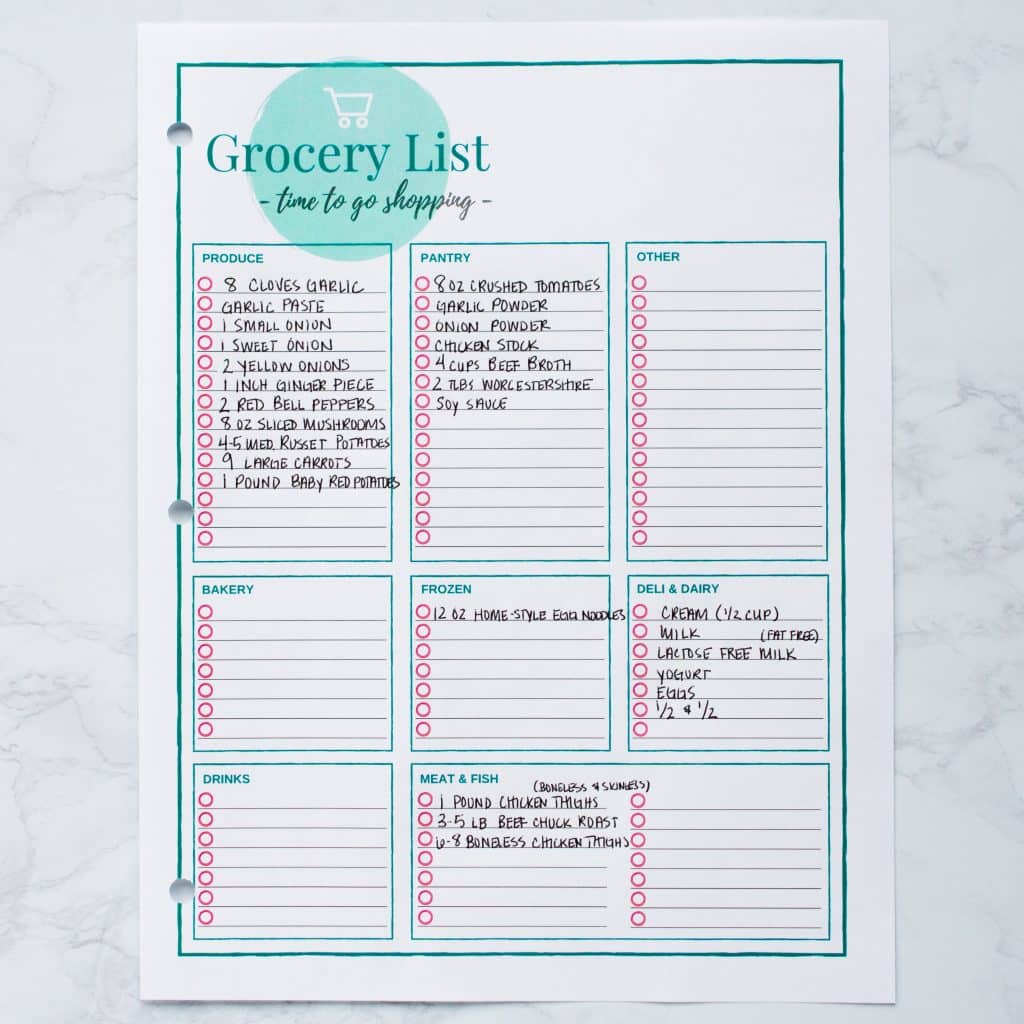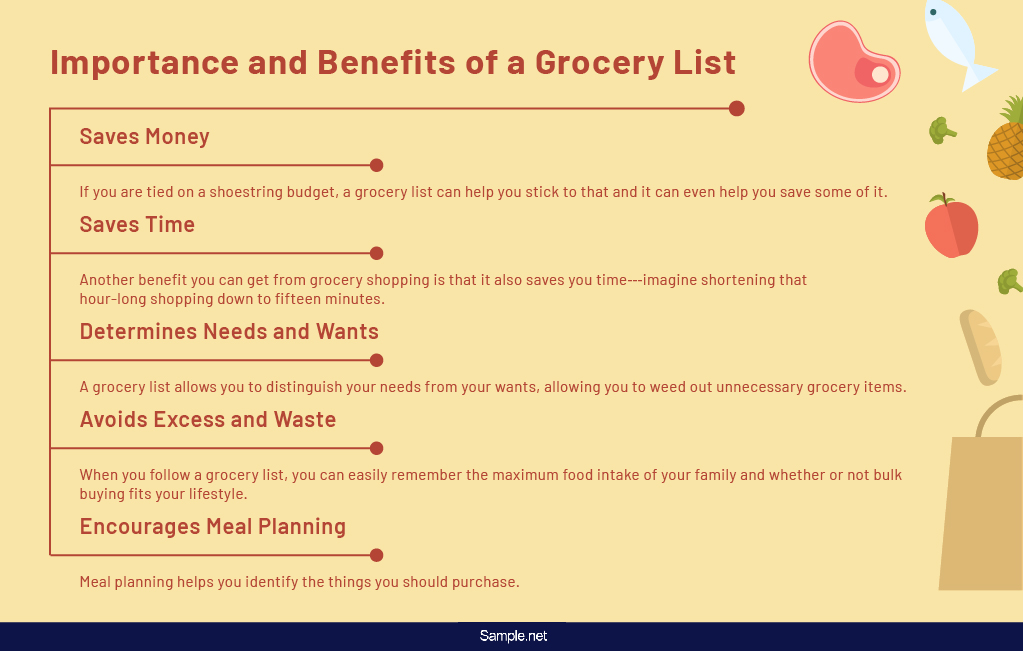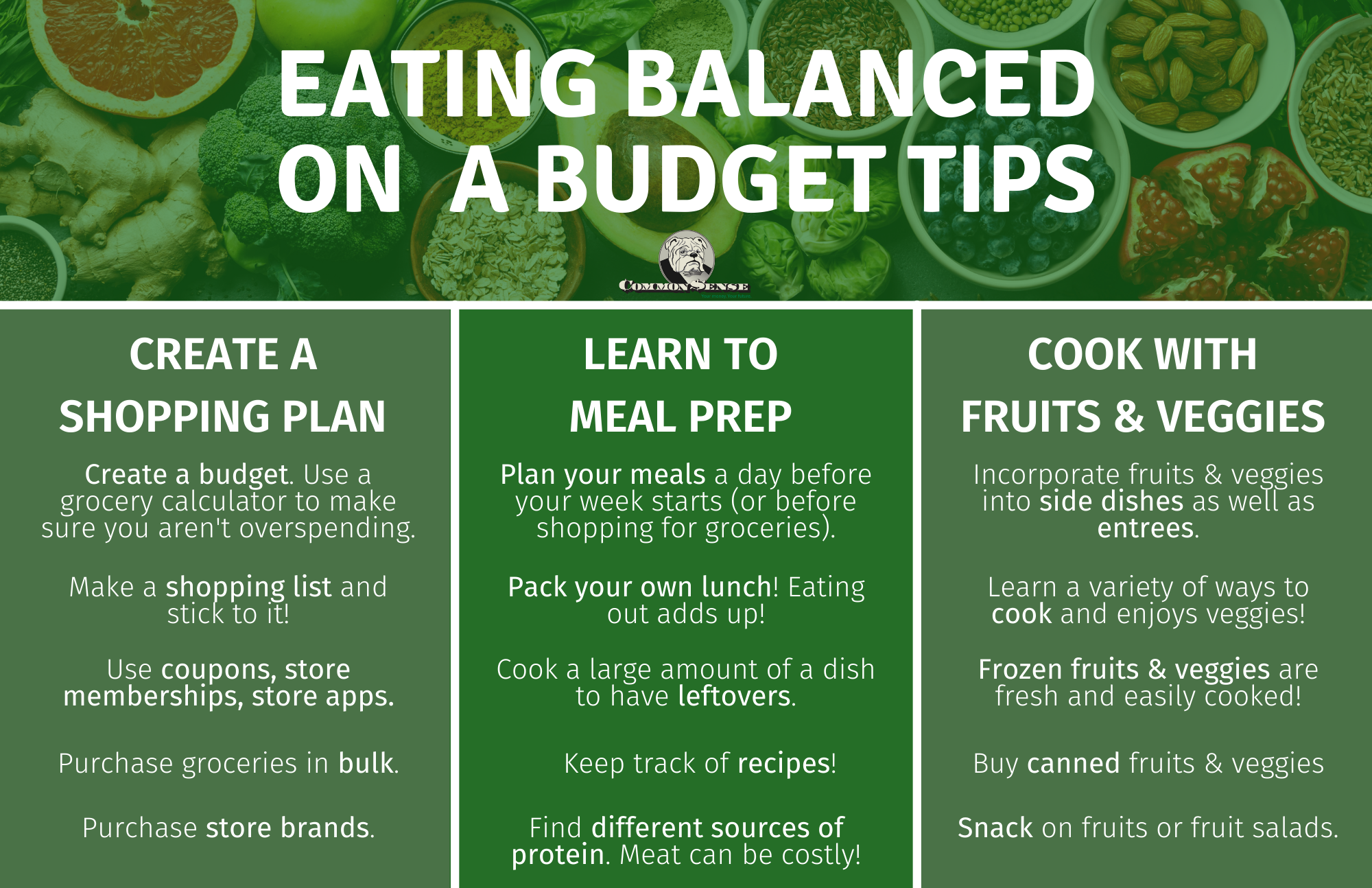Are you wondering how to save money on groceries? Grocery shopping is one of the essential parts of our life, but it doesn’t have to be expensive.
- How do Eating Habits Impact Your Budget?
- Why is Saving Money on Groceries Essential?
- What is Grocery Budgeting?
- Factors to Consider When Creating a Grocery Budget
- How to Create a Grocery Budget?
- Benefits of Budgeting for Groceries
- Tools and Resources for Grocery Budgeting
- Typical Grocery Budget by Family Size
- How to Save Money on Groceries?
- 4 Grocery Budgeting Mistakes to Avoid
- Conclusion
- FAQ
There are several ways to explore how to save money on groceries without compromising quality. This guide will show you ten clever ways to save money on groceries.
From meal planning to bulk buying, you’ll learn how to keep your grocery bill down while still getting the food you need. You’ll also get tips on finding the best deals and discounts and making the most of your grocery shopping trips.
So let’s get into it and discover how to save money on groceries without compromising quality.
How do Eating Habits Impact Your Budget?
Food is a necessity, and everyone eats, but it is easy to put spending on eating out and groceries at the bottom of your financial priority list. But eating habits can significantly impact your budget, even if you eat at home.
Like eating out, giving your grocery budget little thought, and buying everything you see can impact your budget.
Eating healthy can be costly, but it doesn’t have to be. A healthy diet can prevent many diseases, help you live longer, and make you more productive at work. Additionally, maintaining a healthy diet can cut your health insurance premiums and help you save money on medical expenses.
Making minor changes to your daily habits can result in considerable savings. Applying a few simple strategies can help you find how to save money on groceries and put more money in your pocket. For instance, stocking up on sale items can save more money on groceries than you think.
With such adjustments to your spending habits, you can free up additional funds that you can put toward other expenses.
Why is Saving Money on Groceries Essential?
Although you might not realize it, buying groceries can consume a vast portion of your budget.
According to data from The United States Department of Agriculture (USDA), the average expense of groceries for a family of four is $182 per week, which is $972 per month. That’s almost $1,200 a month on groceries! And it gets even more expensive when you have a family.
Most of us could save money if we were willing to make a few changes. You might need to spend a little more on groceries if your goal is to increase your grocery budget to buy healthier foods or if you have a large family to manage. Otherwise, you can easily save money on groceries by making simple changes.
What is Grocery Budgeting?
Grocery budgeting determines how much you should spend each month on groceries. This can calculate as a specific amount of dollars or percentage of your total household income.

Grocery budgeting can apply to anyone who buys groceries but can be particularly helpful for people on a strict budget, such as students or families on a single income.
You can plan your meals accordingly and prevent food waste by calculating how much you should use each month on groceries. Moreover, by setting a budget, you can keep an eye on your spending and prevent going over your budget.
Factors to Consider When Creating a Grocery Budget
There are a few factors to consider when creating a grocery budget. These include:
1. Your family size
If a family has several members, there will be a more significant expense to meet their needs. The more people you feed, the more you’ll have to spend on groceries.
2. How much do you spend on non-food items
Things like toiletries and household items add up and can be a significant portion of a household’s budget, so make sure you’re factoring that into your calculations.
3. Your lifestyle
If you travel a lot, if there are special dietary requirements in your home, or if you want to try new hobbies, you’ll likely have higher expenses and will need to plan for that.
4. Your diet and eating habits
If you follow special diets such as vegan or gluten-free, you will likely have higher expenses, especially if you regularly eat exceptional or organic food.
You can calculate how much you need to spend on groceries each month by multiplying your family size by your average monthly income. Then, add 10% for miscellaneous expenses, such as snacks for the road, birthday gifts, and more.
How to Create a Grocery Budget?
Creating a grocery budget is another great way to stay on track with your spending while also eating a healthy and balanced diet. There are a few other ways to go about doing this.

1. Weekly Grocery Budget
A weekly grocery budget is a spending plan that divides your monthly grocery budget into a set weekly amount. Having a set budget for each week will help you avoid overspending on groceries and can help reduce the amount of stress associated with shopping.
One way to calculate your weekly grocery budget is to take the amount you want to spend each month and divide it by 4.
This will give you the amount you need to pay weekly for groceries. A vital factor to remember when creating a weekly grocery budget is that you should account for any additional items that you may need, such as paper products, cleaning supplies, and fruits and vegetables.
This can be an excellent way to track your spending and ensure you stay on budget. Record how much you spend on groceries each week and mark it against your grocery budget.
2. Monthly Grocery Budget
A monthly grocery budget calculates the amount you will spend each month on groceries. By doing this, you will save money by taking advantage of sales and buying items in bulk. The first step when creating a monthly grocery budget is to decide how much you need to consider investing each month on groceries.
Using a budgeting app is an excellent way to keep your monthly grocery budget on track. Many different budgeting apps are available, and many are free. Once you have an app, you can track your spending, set savings goals, and figure out how much you can use on groceries each month.
Take the amount you have available for groceries and divide it by the number of weeks in the month.
3. Grocery List Budget
If you find it challenging to stick to your budget, you can create a grocery list budget. Make a list of the items you would like to buy, and mark each item with the amount you have to spend. This will help you stay on budget while ensuring you remember everything.
Benefits of Budgeting for Groceries
If you create a budget for groceries, you’ll be able to avoid spending too much money on food and other things while also eating healthy, nutritious meals. Moreover, once you start budgeting for groceries and tracking your spending, you’ll be able to identify where you might be spending too much money.

This will allow you to make adjustments, track your budget and find ways on how to save money on groceries. You’ll also be able to avoid wasting food, which is good for your budget and your health, as you’ll eat fresh and nutritious food.
Tools and Resources for Grocery Budgeting
There are many different tools and resources that you can use to help you budget for groceries, such as apps and online resources, as well as calculators that can help you decide how much you should spend on groceries.
1. Apps
You can use many apps to help you budget for groceries, such as Mint, You Need a Budget, and Wal-Mart Savings Catcher. These services can help you track spending and stay on budget while providing you with other helpful tools to make budgeting easier.
Mint: Mint can help you track your expenses and create a budget. It can also help you set savings goals and find ways to save money each month.
You Need a Budget – YNAB is another app that helps you track your spending and create a budget. It can also help you set savings goals and find ways to save money each month.
Wal-Mart Savings Catcher – The Wal-Mart Savings Catcher helps you save money each time you shop by providing the lowest prices on groceries.
2. Online resources
You can also rely on online resources to help you budget for groceries, such as Value Penguin, which can help you find the best deals.
3. Calculators
You can also find calculators online that can help you decide how much you will spend on groceries.
Grocery budgeting is an important skill, especially in today’s uncertain economic climate. With rising food prices, it can be difficult to know how.
Typical Grocery Budget by Family Size
One of the great ways to determine your ideal grocery budget is by looking at typical grocery budgets for different family sizes.
The table below can help you better understand your grocery budget, depending on your family size.
| Family Size | Budget / Week |
| Single Adult | $60 |
| Family of 2 | $100 |
| Family of 3 | $130 |
| Family of 4 | $170 |
| Family of 5 | $ 200 |
How to Save Money on Groceries?
Let’s look into the 10 easy tips that will help you find how to save money on groceries.

1. Understand Your Grocery Habits and Needs
Before saving money on groceries; you must understand your grocery habits and needs. Understanding your needs and habits will help you identify areas to save money.
You may notice you go through many towels and toilet paper each month. Reducing your grocery spending doesn’t necessarily mean you have to buy fewer of these items. You could easily buy them in bulk and save money without spending any less.
Understanding your habits can help you identify how to save money on groceries. You may find that you eat out a lot, which means you have unnecessary grocery expenses. Or you may have students at home who eat through their snacks and lunches. Knowing your habits can help you identify areas to save money and focus your efforts.
2. Make a Grocery Budget
Many people need to realize the importance of a grocery budget. Many people go grocery shopping and buy whatever they need without a plan. You might be spending more than you need on groceries without a budget.
Having a budget for your groceries is essential as it helps you plan how much you can spend on groceries each month. Having a budget will help you only buy what you need without overspending. It can also help you avoid impulse purchases, which can often be unhealthy or unnecessary.
Having a budget for your groceries can help you understand how to save money on groceries and help you cook and eat healthier. If you have a budget, you can plan what meals you will make weekly.
3. Meal Plan and Create a Shopping List
While some think of meal planning and grocery shopping as separate activities, they can work well together.
Start by writing out a weekly meal plan. Start with your schedule and work backward. Look at your schedule and determine which days you have time to cook. Then, start writing out a weekly meal plan with the days and times you have available for cooking. Based on your meal plan, create a grocery list.
There are two ways to do this. You can list everything you need for each meal and use that list to guide your grocery shopping. Or, you can also stick to your food list and shop as many others do.
Shopping with a list is crucial if you want to know how to save money on groceries. The goal of grocery stores is to encourage you to spend as much money as possible and buy more items than you need.
Having a list will help you avoid impulse buys and keep you on track with your grocery budget.
4. Buy in Bulk and Shop at Warehouse Clubs
Buying in bulk is another tip that will help you find how to save money on groceries. You can purchase many items in bulk, including produce and spices.
Buying produce in bulk will help you save money as it will last longer than the product that ships in from other countries. Buying produce in bulk will last longer and help you to save money.
Buying in bulk is also an excellent option for spices. Many spices lose their flavor after about six months. Burying in bulk will help you save money and spices for much longer. Saving money on groceries doesn’t just mean buying the cheapest items. It also means purchasing the items that will last the longest and keep you from having to repurchase them.
Buying in bulk is not just for food items. You can also buy household items in bulk. Buying in bulk will help you save money since you aren’t buying smaller items that will run out quickly. Paper towels, toilet paper, and tissues will last longer when you buy them in bulk.
5. Compare Prices and Look for Deals
Learning how to compare costs is another method to explore how to save money on groceries.
One of the best methods to deal with your doubts about how to save money on groceries is to compare prices and look for deals.
To compare prices, use apps like MYER. MYER allows you to search for the products you need and see if there are any coupons available. You can also see what other stores are selling the items for.
Using an app like MYER makes it easy to see if one store has a better price than another.
Once you find a store that is consistently cheaper than others, be sure to shop there. You can also save money on groceries by signing up for store rewards programs. Many large grocery stores offer rewards programs. You can earn money back or receive discounts on groceries by signing up for these programs.
6. Shop at Different Grocery Stores
If you want to save money on groceries, consider shopping at various grocery stores, as different shops offer different prices even for the same items.
Most people only shop at one or two grocery stores, and you won’t even know the discount price in the shops nearby. So you can shop at a different store each week or a few other stores each month. It is crucial to remember that you shouldn’t shop at more stores if it lets you buy more food than you need.
The first step to shopping at different stores is getting a list of all the grocery stores in your area. Once you have that list, try to shop at a different store each week. This can be difficult as you may travel to different towns to shop at different stores.
7. Buy Frozen or Canned Foods
Purchasing frozen or canned goods on sale is another option that will let you know how to save money on groceries.
Frozen or canned foods can be just as nutrient-dense as those that are fresh and last a long time. This way, you can spend less on buying fresh fruits and vegetables, which can be expensive. Frozen and canned foods are often cheaper than fresh foods, so you can save money on groceries by buying them.
You can also buy in-season fruits and vegetables, which are cheaper since they aren’t imported, and you can make your own frozen and canned foods.
For example, you can make your frozen fruit or vegetable bags. You can also make your frozen meals in large batches and freeze them for easy reheating later.
8. Use Coupons and Discounts
Using coupons is another answer to how to save money on groceries.
Using coupons to save money on groceries is a brilliant idea. They are also a great way to save money on groceries if you have a specific grocery budget. They can help you save money on a variety of items at the grocery store.
You can find coupons online and in newspapers. Coupons can help you save a significant amount on groceries if you use them wisely. Many stores around the country offer discounts for senior citizens or people who shop using EBT. Many stores will also offer exclusive discounts to their stores.
9. Look for Private Label Brands
You can consider private-label brands if you’re shopping on a budget.
Many stores sell products that can be just as good as higher-priced brands. You can find these brands at stores like Walmart, Target, and Kroger.
When you buy private label brands, you can save money on groceries. These brands are often less expensive than major brands. You can also look for coupons and sales on private-label brands.
10. Use Cashback and Loyalty Programs
If you’re shopping on a budget, you can get cashback on your purchases using a cashback app such as Dosh and Ibotta.
You can also use a grocery loyalty program to save money. Many grocery stores offer loyalty programs, so check to see if your store has one. These programs often allow you to get discounts and coupons as you shop.
Further, you can also try a money-saving app like Honey if you’re shopping online. Honey is a browser add-on that finds you money-saving coupons when shopping online.
4 Grocery Budgeting Mistakes to Avoid
1. Not tracking your spending
You need to track your spending to know if you’re overspending or staying within your budget. This can leave you open to making impulsive purchases and spending more than you should, which may lead to financial problems in the long run.
2. Not setting a budget
You won’t know how much money you spend on food each month if you don’t create a budget. This can lead to overspending, financial issues, and unhealthy eating habits.
3. Not considering your family’s diet
You might need to spend more on groceries if you have a family that adheres to a special diet, such as a vegan or gluten-free one, as these diets typically call for more specialty foods.
4. Not considering special events
If you’re planning on hosting a special event, such as a birthday party or holiday, you may need to spend more on groceries. So, consider the special events and adjust your budget as necessary.
Conclusion
Grocery shopping can be intimidating if you’re on a tight budget and need to learn how to save money on groceries. Creating a grocery list requires thinking ahead, planning meals, and making smart choices.
You should also be aware of your budget and adhere to them. With some planning and discipline, you can create an effective grocery list that will help you save money while still getting all the items you need.
FAQ
Why is it crucial to stick to a budget when you shop?
Having a budget promotes financial stability. Following a strategy and keeping track of your spending can make it easier to focus on your other expenses.
What are the aspects influencing food budgeting?
- Income of the Family.
- Size of the Family.
- Composition of the Family.
- Occupation of the Family members.
- Intercity Differences.
What are the advantages of food planning for the family?
- You can better manage your time by planning your meals for the week.
- Portion control
- Reduces the amount of food waste
- Save money
- Avoids unhealthy options



![21 Worst Shark Tank Failures And Why They Failed? [2024] 8 Shark Tank Failures](https://thehustlestory.com/wp-content/uploads/2021/11/Shark-Tank-Fails-Blog-Banner-2.jpg)


